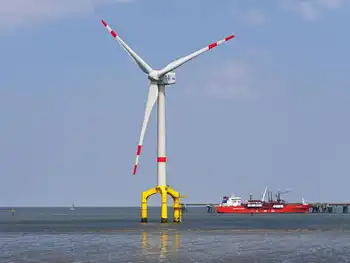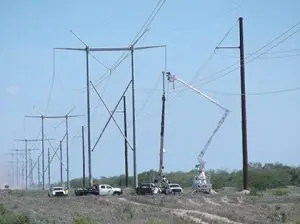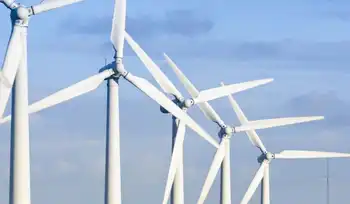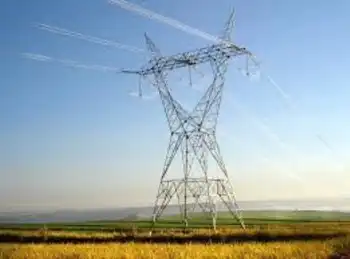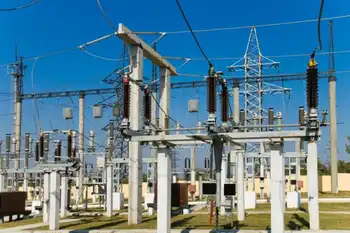Ontario Competitive Energy Procurement accelerates renewables, boosts grid reliability, and invites competitive bids across solar, wind, natural gas, and storage, driving innovation, lower costs, and decarbonization to meet rising electricity demand and ensure power supply.
Key Points
Ontario Competitive Energy Procurement is a competitive bidding program to deliver reliable, low-carbon electricity.
✅ Competitive bids from renewables, gas, and storage
✅ Targets grid reliability, affordability, and emissions
✅ Phased evaluations: technical, financial, environmental
Ontario has recently marked a significant milestone in its energy sector with the launch of what is being touted as the largest competitive energy procurement process in the province’s history. This ambitious initiative is set to transform the province’s energy landscape through a broader market overhaul that fosters innovation, enhances reliability, and addresses the growing demands of Ontario’s diverse population.
A New Era of Energy Procurement
The Ontario government’s move to initiate this massive competitive procurement process underscores a strategic shift towards modernizing and diversifying the province’s energy portfolio. This procurement exercise will invite bids from a broad spectrum of energy suppliers and technologies, ranging from traditional sources like natural gas to renewable energy options such as solar and wind power. The aim is to secure a reliable and cost-effective energy supply that aligns with Ontario’s long-term environmental and economic goals.
This historic procurement process represents a major leap from previous approaches by emphasizing a competitive marketplace where various energy providers can compete on an equal footing through electricity auctions and transparent bidding. By doing so, the government hopes to drive down costs, encourage technological advancements, and ensure that Ontarians benefit from a more dynamic and resilient energy system.
Key Objectives and Benefits
The primary objectives of this procurement initiative are multifaceted. First and foremost, it seeks to enhance the reliability of Ontario’s electricity grid. As the province experiences population growth and increased energy demands, maintaining a stable and dependable supply of electricity is crucial, and interprovincial imports through an electricity deal with Quebec can complement local generation. This procurement process will help identify and integrate new sources of power that can meet these demands effectively.
Another significant goal is to promote environmental sustainability. Ontario has committed to reducing its greenhouse gas emissions through Clean Electricity Regulations and transitioning to a cleaner energy mix. By inviting bids from renewable energy sources and innovative technologies, the government aims to support its climate action plan and contribute to the province’s carbon reduction targets.
Cost-effectiveness is also a central focus of the procurement process. By creating a competitive environment, the government anticipates that energy providers will strive to offer more attractive pricing structures and fair electricity cost allocation practices for ratepayers. This, in turn, could lead to lower energy costs for consumers and businesses, fostering economic growth and improving affordability.
The Competitive Landscape
The competitive energy procurement process will be structured to encourage participation from a wide range of energy providers. This includes not only established companies but also emerging players and startups with innovative technologies. By fostering a diverse pool of bidders, the government aims to ensure that all viable options are considered, ultimately leading to a more robust and adaptable energy system.
Additionally, the process will likely involve various stages of evaluation, including technical assessments, financial analyses, and environmental impact reviews. This thorough evaluation will help ensure that selected projects meet the highest standards of performance and sustainability.
Implications for Stakeholders
The implications of this procurement process extend beyond just energy providers and consumers. Local communities, businesses, and environmental organizations will all play a role in shaping the outcomes. For communities, this initiative could mean new job opportunities and economic development, particularly in regions where new energy projects are developed. For businesses, the potential for lower energy costs and access to innovative energy solutions, including demand-response initiatives like the Peak Perks program, could drive growth and competitiveness.
Environmental organizations will be keenly watching the process to ensure that it aligns with broader sustainability goals. The inclusion of renewable energy sources and advanced technologies will be a critical factor in evaluating the success of the initiative in meeting Ontario’s climate objectives.
Looking Ahead
As Ontario embarks on this unprecedented energy procurement journey, the outcomes will be closely watched by various stakeholders. The success of this initiative will depend on the quality and diversity of the bids received, the efficiency of the evaluation process, and the ability to integrate new energy sources into the existing grid, while advancing energy independence where feasible.
In conclusion, Ontario’s launch of the largest competitive energy procurement process in its history is a landmark event that holds promise for a more reliable, sustainable, and cost-effective energy future. By embracing competition and innovation, the province is setting a new standard for energy procurement that could serve as a model for other regions seeking to modernize their energy systems. The coming months will be crucial in determining how this bold initiative will shape Ontario’s energy landscape for years to come.
Related News







